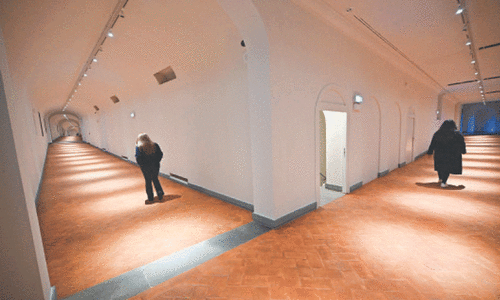COLOMBO: A bill to repeal the Muslim Marriage and Divorce Act of 1951 was tabled in the Lankan parliament on Wednesday.
It was presented as a private member’s bill by Buddhist monk and Member of Parliament Athuraliye Rathana Thera during parliamentary session which marked the second day of the adjournment debate on the government policy statement presented by President Gotabaya Rajapaksa on Jan 3.
The marriage of children as young as 12 years is legal for Sri Lankan Muslims under the Muslim Marriage and Divorce Act (MMDA) in Sri Lanka, also known as the Muslim Personal Law.
For years Muslim activists have been fighting to change the laws to prevent abuse but have been opposed by radical as well as some moderate Muslim clergy members, including Muslim politicians.
Member of the committee on Muslim Personal Law Reforms, Rizwe Mufthi, who is also president of the All Ceylon Jamiyathul Ulama (ACJU) is on record declaring that the Muslim Marriage and Divorce Act (MMDA) is “perfect in the present state” and does not require changes resulting in Sri Lankan women groups reacting strongly many times, urging the state to intervene.
The committee to re-look at the Muslim Marriage law in Sri Lanka and suggest reform was appointed by the previous Rajapaksa government in 2009 during the time of former president Mahinda Rajapaksa, but no concrete change could take place following heavy criticism by male clerics and several key Lankan Islamic organisations against reforms.
Raising the age of marriage of females to 18 years, ensuring male responsibility towards their children in case of divorce, scrapping the female dowry provision, a thorough assessment by the Quazi board of the financial background and suitability of the male before marriage, and the inclusion of women to the Quazi board, are some points Muslims who support the amendment of the law had wanted added.
Activists fighting for the scrapping of the MMDA had wanted child marriage in Sri Lanka to be looked at as a sociological problem and not a religious problem. However Muslim activists had faced great pressure from their more radical or conservative counterparts and urged not to speak on the topic because it might raise anti Muslim sentiments in the country and those who did speak up were often labeled as pro West or helping to undermine Islam.
Published in Dawn, January 9th, 2020














































Dear visitor, the comments section is undergoing an overhaul and will return soon.